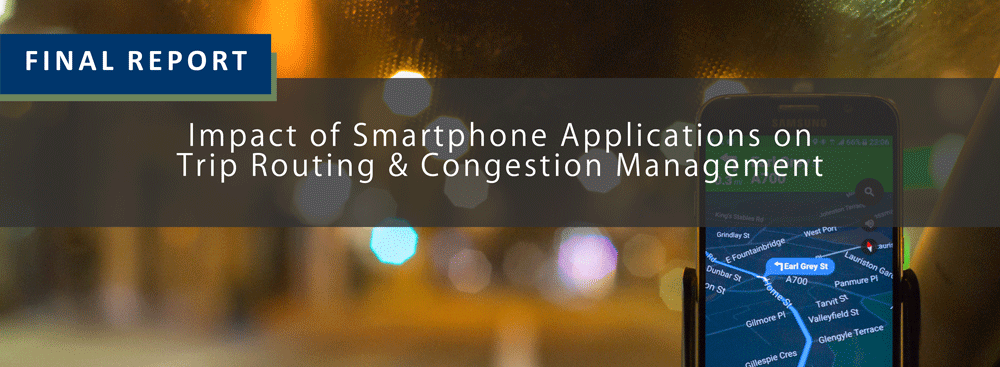Impact of Smartphone Applications on Trip Routing and Congestion Management
Research Team
Angshuman Guin, Georgia Institute of Technology
Michael Hunter, Georgia Institute of Technology
Kari Watkins, Georgia Institute of Technology
Mohammed Hadi, Florida International University
Feng Wang, formerly at Jackson State University
UTC Project Info
Final Report
Final Technology Transfer Report
Project Brief: How do drivers change their routes when using navigation apps?
Project Brief: New method to predict driver diversion rates during incidents on freeway facilities
Webinar
Project Description
Proliferation of mobile devices with routing apps such as Google Maps, Waze, INRIX, TomTom, etc. has made possible congestion avoidance through real-time re-routing of vehicles for any mobile-enabled driver. However, to date, the real impacts of these routing apps on system and local traffic across the roadway infrastructure are largely unknown. There is a limited amount of research that has broadly investigated issues such as the impact of social media on transportation policy (Gal-Tzur et al., Bregman and Watkins), usage patterns of smartphone apps (Jones et al.), and use of gaming concepts to influence driver behavior (McCall and Koenig, Wang et al.). However, there is a dearth of research investigating the impact of routing apps on trip routing or travel behavior. This study attempts to fill this gap and gather evidence and quantify the relationship between routing app usage and propensity of alternative route choices by routing app users.
Products
Tool – Developed a method to estimate diversion due to incidents based on the freeway mainline detector data combined with incident data using clustering, cumulative volume analysis, and regression analysis.
Code – A code was created for creating a website to receive “Google Location History” data. It has been published to GitHub here.
